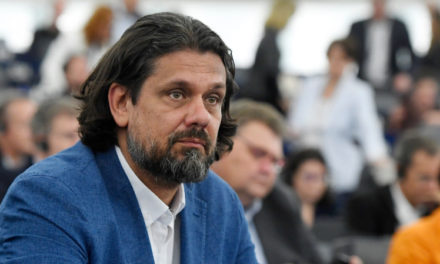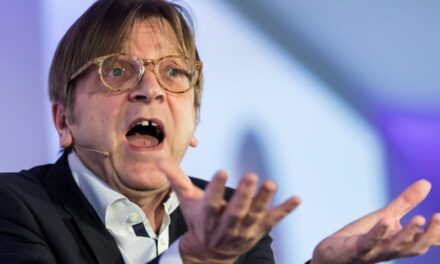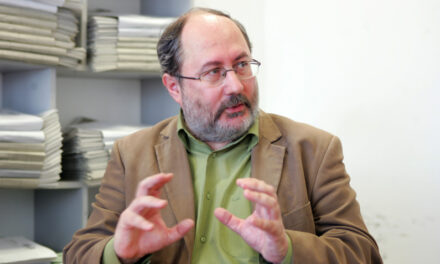And here we have András. He buys the electric car and the e-scooter, then complains that a factory has to be built for the batteries - we look at
I'll let you know: I don't have a smartphone, a car, an e-scooter, or an electric wine grinder. So there are no soft feelings attached to batteries; as well as the European Commission, which is in the European strategy for low-emission mobility
explicitly stated: "a domestic production base for new generation battery cells for electric vehicles must be developed".
But once it's got to be made, it's got to be made - who am I to overrule green progression.
On the other hand, we have András Fekete-Győr , who, in addition to writing as an eminent European in his prime ministerial candidate program, that he would only allow electric cars to be put on the market from 2035, he bought himself an electric scooter without any moral or environmental reservations (which he then prematurely also made it unusable, drastically shortening the life of a product completed in a production process that spanned continents).
The same person is now speaking out against the "environmentally destructive" battery factory that threatens the "livable future".
Why, until now, what was the idea, how are the so desirable e-vehicles created? They grow from organic seeds in small gardens, and the battery is a kind of internal organ, which would form by itself from tiny cells at a given point in the individual's development, if the NER would let it?
Or, until now, there was no question that the necessary cobalt is often mined by children in the Congo, that lithium is extracted using 21 million liters of water per day in the Atacama desert, that for every ton of rare earth metal mined, a ton of radioactive waste is generated in Myanmar, and that in order to certain e-rollers also needed a Chinese factory somewhere - but as long as capital could not be forged from the fear of the planet, was all this irrelevant?
With twinkling eyes, almost falling off the bench, she announces that Mrs. Brussel, I want 100 percent e-mobility as soon as possible (let's not wait until a better technology comes along);
then he leans back to let the Myanmar militias solve the environmentally friendly production, and we will then proudly display the "Emission-free Europe" badge.
This is all the more suspicious, as we also have a Párbeszéd, which calls itself a green party, whose faction leader, Tímea Szabó, says (if I understand his analysis of the situation put together with avant-garde syntax correctly) that the local production of the energy storage equipment essential for the EU's green transition is a "perverse meanness" and the "most environmentally destructive ” makes the country. (Also, if the production took place in China and the stuff was brought from there to the car factory in Debrecen, Mother Earth Gaia would already sigh.)
Péter Ungár now, in 2023, argues against the battery factory by saying that Hungary is pushing it too far, and although "electric transport can be an important tool in the green transition, it is not the only such new technology". If the government decides tomorrow to allow the establishment of wind power plants, it will not pocket what it will receive from the LMP in 2027 due to the forcing of wind energy production and the poor perishing birds.
Source and full article: Mandiner
Featured image: Hír TV













